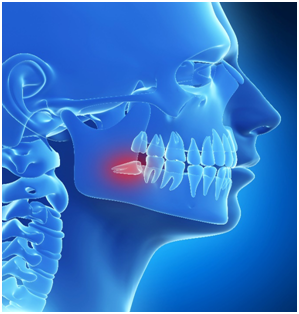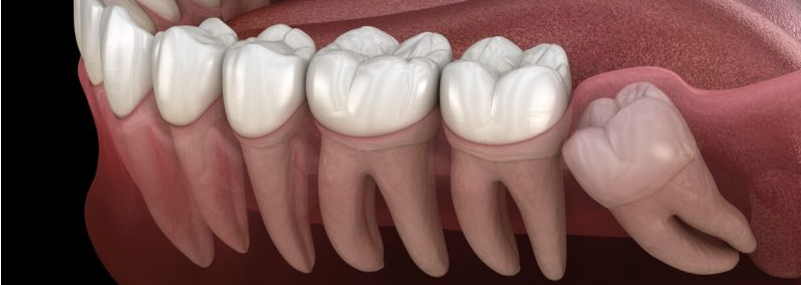What You Need to Know About Wisdom Teeth
Wisdom teeth and wisdom tooth pain doesn’t always have to be the ‘doom and gloom’ repertoire that it has developed in the modern era. They were in fact useful tools that helped our ancestors chew and eat. They are the third set of molars that commonly develop between the ages of 18-24.
So why is it that our ancestors had little problems with their wisdom teeth while many of us develop wisdom tooth pain and need them removed?
Our ancestors had tougher diets like leaves, roots and meat and needed an extra set of molars to help with chewing and grinding of the food. Our diets have since refined with cooking meals. So, most peoples chewing patterns are unaffected with or without wisdom teeth. Over time with evolution, our jaws have become smaller than that of our ancestors. So, when wisdom teeth begin to come through at the ages 17+ when our jaws have stopped growing, there is often little room for the wisdom teeth which is the cause of wisdom tooth pain.
So do all wisdom teeth need to be removed?
Absolutely NOT! Most people assume that wisdom teeth need to be removed however that’s not always the case. Some people have them grow perfectly into their smile without causing any crowding or issues. Each situation is different and needs to be carefully assessed.

Your wisdom teeth may need to be removed if they are causing pain and discomfort, growing at an angle, causing damage to surrounding teeth or crowding. Wisdom teeth that have only partly broken the gums can irritate the gums causing inflammation and infections. Even if they are not painful, bacteria can get under the gums and cause gum disease or decay. Not everyone has symptoms and others may be unaware that your wisdom teeth may need removing. These are assessed by your dentist using advanced imaging techniques which can be picked up during your routine dental visit.
I need my wisdom teeth out, what’s next?
No one looks forward to wisdom teeth extraction, so you’re not alone.
However, if you do need yours out, your dentist will recommend that you have these removed early. In the early years (teenagers and early adults) the roots of the wisdom teeth have not fully formed and are easier to remove. Also, your recovery is better and faster.
Most wisdom teeth can be removed in the chair under local anaesthetic. In some complex cases, a general anaesthetic may be required.
What do I do after my wisdom teeth have been removed?
Now is the time to indulge yourself. Get yourself as much ice cream and pudding that you can muster. Put your feet up and binge watch your favourite Netflix shows.
Your dentist may prescribe you with some pain relief and in some cases antibiotics. You may experience some bruising and swelling where icepacks may be needed for the first 1-2 days. Have a soft food diet while you’re healing. Avoid strenuous exercise and heavy lifting. Don’t smoke for 2-3 days after the procedure as it can affect your healing.
Recovery is typically a long weekend. Sometimes it can extend to 1-2 weeks.
As always, if in doubt for anything, go back and see your dentist. Your dentist will advise if everything is healing well.

Author: Dr Monil Gohil from Dentistry on Coolum


